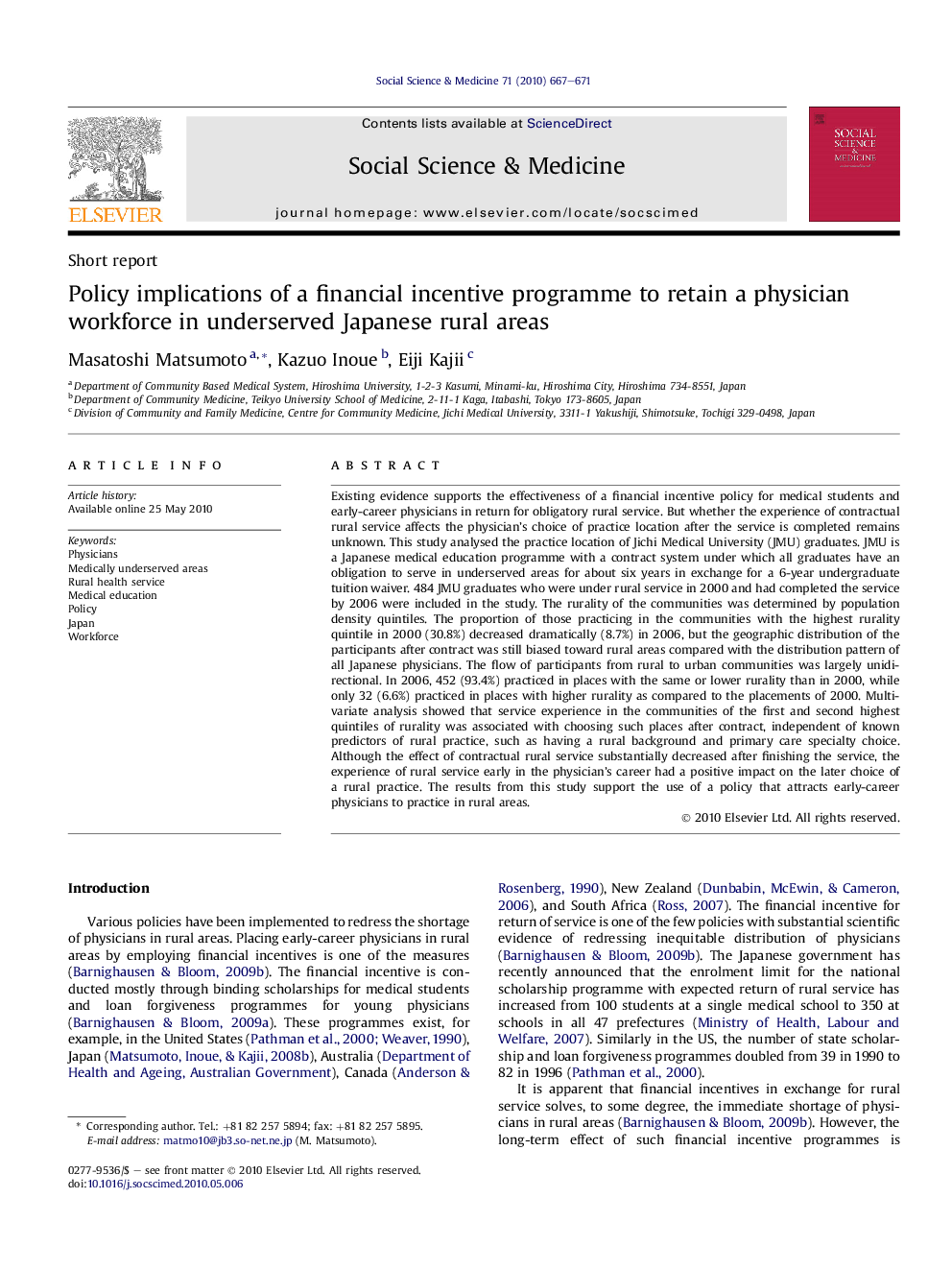| کد مقاله | کد نشریه | سال انتشار | مقاله انگلیسی | نسخه تمام متن |
|---|---|---|---|---|
| 953001 | 927561 | 2010 | 5 صفحه PDF | دانلود رایگان |

Existing evidence supports the effectiveness of a financial incentive policy for medical students and early-career physicians in return for obligatory rural service. But whether the experience of contractual rural service affects the physician’s choice of practice location after the service is completed remains unknown. This study analysed the practice location of Jichi Medical University (JMU) graduates. JMU is a Japanese medical education programme with a contract system under which all graduates have an obligation to serve in underserved areas for about six years in exchange for a 6-year undergraduate tuition waiver. 484 JMU graduates who were under rural service in 2000 and had completed the service by 2006 were included in the study. The rurality of the communities was determined by population density quintiles. The proportion of those practicing in the communities with the highest rurality quintile in 2000 (30.8%) decreased dramatically (8.7%) in 2006, but the geographic distribution of the participants after contract was still biased toward rural areas compared with the distribution pattern of all Japanese physicians. The flow of participants from rural to urban communities was largely unidirectional. In 2006, 452 (93.4%) practiced in places with the same or lower rurality than in 2000, while only 32 (6.6%) practiced in places with higher rurality as compared to the placements of 2000. Multivariate analysis showed that service experience in the communities of the first and second highest quintiles of rurality was associated with choosing such places after contract, independent of known predictors of rural practice, such as having a rural background and primary care specialty choice. Although the effect of contractual rural service substantially decreased after finishing the service, the experience of rural service early in the physician’s career had a positive impact on the later choice of a rural practice. The results from this study support the use of a policy that attracts early-career physicians to practice in rural areas.
Journal: Social Science & Medicine - Volume 71, Issue 4, August 2010, Pages 667–671